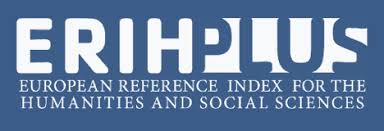№1, 2021
The article is devoted to some of the features of the formation and development of an intellectual society and economy based on ICT, information, knowledge and technology. The necessity and urgency of the creation and development of a new society and economy are substantiated. The paper explains the general directions of post-industrial theories, information, knowledge and post-industrial economics. The intellectual factor in the post-knowledge economy, the main distinctive features of the knowledge economy and the post-knowledge economy are shown. In the form of a conceptual model, the basic features and principles of the development of the intellectual economy are schematically proposed. The institutional factors and the main problems of the formation of the intellectual economy are clarified. The general directions and characteristics of the development of indicators for the formation and level of development of the intellectual economy are determined. Certain proposals and recommendations are made taking into account some modern trends in the development of the intellectual society and economy. The article uses a systematic approach to identifying the problems of an intellectual society and economic development in accordance with the trends of international economic development, the challenges of Industry 4.0 revolution. The methods of statistical analysis are applied here, the requirements of modern ICT technologies are taken into account. Recommendations based on the analysis of the peculiarities of the formation and development problems of ICT-based intellectual society and economy can contribute to the effective organization of the new economy. Taking into account the proposed conceptual model of the formation of the modern economy and the stages of further development can create additional opportunities for decision-making in the new economic management (pp.43-55).
- Клейнер Г.Б. Интеллектуальная экономика нового века: Экономика постзнаний // Экономическое возрождение России, 2020, №1(63), с. 35-42.
- Azərbaycan - 2020: Gələcəyə Baxış” İnkişaf Konsepsiyası. Bakı, 29 dekabr 2012, https://president.az/files/future_az.pdf
- Azərbaycan Respublikasında İnformasiya Cəmiyyətinin İnkişafına dair 2014-2020-ci illər üçün Milli Strategiya. Bakı, 02 aprel 2014, https://president.az/articles/11312.
- Azərbaycan Respublikasının milli iqtisadiyyat perspektivi üzrə Strateji Yol Xəritəsi. Bakı, 6 dekabr 2016, https://president.az/articles/21953.
- Əliyev Ə.Q. İnformasiya iqtisadiyyatı sektorlarının formalaşmasının elmi-nəzəri və metodoloji əsaslarının tədqiqi // İnformasiya cəmiyyəti problemləri, 2018, №2, s. 84-96.
- Проблемы экономического роста в странах Центрально-Восточной Европы в условиях новой реальности в мировой экономике. Отв. ред. Н.В. Куликова, М., ИЭ РАН, 2019, 366 с., http://www.inecon.org.
- HideakiH. The big push to a knowledge-based economy with intellectual property rights protection // Review of Development Economics, 2020, vol.24, issue 4, pp.1551-1559.
- Nikitenko S.M., Mesyats M.A. Intellectual property rights as the resource for innovative economy development / IOP Conference Series: Earth and Environmental Science, SibSIU, Novokuznetsk, Russia, 4–7 june 2019, volume 377, 1-8.
- Безруких Д.В. Информационная экономика как драйвер инновационного развития экономики РФ // Проблемы современной экономики, 2016, №35, с.116-120.
- Farshad F.M., Nasser E. et al. Appropriate theoretical framework for understanding and analyzing economic issues in knowledge-based economy // Journal of the Knowledge Economy, 2017, vol. 8, issue 3, pp.957-976.
- Джигеров З.А., Дубовик М.В. Новые тренды в интеллектуальной экономике // Экономика устойчивого развития, 2013, №13, c.82-87.
- Doguchaeva S.M. Intellectual components of digital automation in economics // Economy Business Banks, 2018, issue 1, pp. 96-104.
- Ишназарова З.М. Экономика России: Место интеллектуального развития и знаний // Вестник ПНИПУ. Социально-экономические науки, 2017, №1, с.164-180.
- Əliyev Ə.Q. Müasir şəraitdə informasiya iqtisadiyyatının formalaşma xüsusiyyətləri və problemləri // AMEA-nın Xəbərləri. İqtisadiyyat seriyası, 2018, №1, s.34-45.
- Замлелый А.Ю. Формирование SMART (интеллектуальной) экономики: теория и практика // Современные проблемы науки и образования, 2012, №4, http://www.science-education.ru/ru/article/view?id=6684.
- Andrew W. Manuel Castells's trilogy the information age: economy, society, and culture // Information Communication & Society, 2016, vol. 19, issue 12, pp.1673-1678.
- Паньшин Б. Интеллектуальный каркас экономики. наука и инновации // Наука и инновации, 2014, №10(140), с. 48-52.
- Sagiyeva R., Zhuparova A., Ruzanov R., Doszhan R., Askerov A. Intellectual input of development by knowledge-based economy: problems of measuring in countries with developing markets // The International Journal Entrepreneurship and Sustainability, 2018, vol. 6, No 2, pp.711-728.
- Centre for the Fourth Industrial Revolution Network, 2019, 24 p.
- Vinod T., Kumar M., Dahiya B. Chapter 1. Smart Economy in Smart Cities // Springer Nature Singapore, 2017, p3-76.
- Indrawati I., Azkalhaq N., Amani H. Indicators to measure smart economy: An Indonesian perspective / ICBIM '18: Proceedings of the 2nd International Conference on Business and Information Management, 2018, september 20 22, pp.173-179.
- Orlovska Y., Cherchata A., Kovalenko O. Development of intellectual economy: some approaches for policy elaborating // Baltic Journal of Economic Studies, 2020, v6, No. 2, pp. 116-124.
- Kupriyanova L.M., Usmanova T.H. The special aspects of the intellectual property economics // Economy Business Banks, 2016, issue 3, pp. 81-94.
- Holroyd C. Technological innovation and building a ‘super smart’ society: Japan’s vision of society 5.0. // Journal of Asian Public Policy, 2020, p.1-14.








.jpg)



